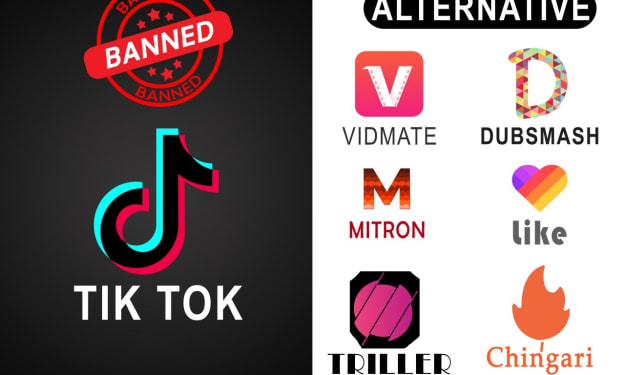Social Media Strategies for Writers: Engaging and Growing Your Audience
Social Media Strategies for Writers

For writers, social media offers a unique platform to reach a broad audience, promote their work, and connect with readers. Unlike other artists, writers primarily rely on the power of words to convey their message, making social media an ideal medium for showcasing their talent. This guide will explore effective social media strategies tailored specifically for writers, helping you build a strong online presence, engage with your audience, and ultimately, grow your readership.
1. Choosing the Right Platforms:
Different social media platforms cater to different audiences and content types. As a writer, it’s essential to choose platforms that align with your goals and the nature of your work.
Twitter:
Twitter is a microblogging platform perfect for writers who want to share short, engaging content. Use it to post quotes, excerpts, writing tips, and updates about your work. Engage in conversations using relevant hashtags like #amwriting, #writerslife, and #writingcommunity.
Instagram:
Instagram is a visual platform, but it can be powerful for writers too. Use it to share aesthetically pleasing photos of your writing space, book covers, and events. Instagram Stories and Reels are great for quick updates, behind-the-scenes looks, and short, engaging videos.
Facebook:
Facebook offers various ways to connect with your audience. Create a dedicated author page to share updates, blog posts, and interact with readers. Join and participate in writing groups to network with other writers and potential readers. Use Facebook Live to host virtual book readings and Q&A sessions.
Goodreads:
Goodreads is a social media platform specifically for book lovers. Create an author profile to connect with readers, participate in book discussions, and promote your books. Engage with your audience by answering questions and participating in Goodreads giveaways.
YouTube:
YouTube is perfect for long-form video content. Create a channel to post book trailers, writing tips, author interviews, and vlogs about your writing journey. Use it to engage with readers on a deeper level through video content.
2. Creating Engaging Content:
Content is king on social media. As a writer, your ability to create compelling and engaging content can significantly impact your social media success.
Types of Content:
Excerpts and Quotes: Share intriguing excerpts and quotes from your work to pique interest.
Writing Tips: Share valuable writing tips and advice to help fellow writers.
Behind-the-Scenes: Give a glimpse into your writing process, workspace, and daily routine.
Book Announcements: Announce new book releases, cover reveals, and publication dates.
Personal Stories: Share personal anecdotes and experiences related to your writing journey.
Visual Content:
Photos: Post high-quality images of your book covers, writing space, and events.
Videos: Create short videos for Instagram Stories, Reels, and TikTok to engage your audience.
Graphics: Use tools like Canva to create visually appealing graphics for quotes, tips, and announcements.
3. Building a Personal Brand:
Your personal brand reflects your unique voice, style, and personality. It helps you stand out in a crowded market and creates a recognizable identity for your readers.
Establishing a Unique Voice and Style:
Develop a consistent voice and style that reflects your personality and writing. This helps create an authentic and relatable brand that resonates with your audience.
Consistent Branding Across All Platforms:
Ensure your branding is consistent across all social media platforms. Use the same profile picture, cover photo, and bio. Maintain a cohesive visual aesthetic and tone of voice in your posts.
4. Engaging with Your Audience:
Building a loyal readership requires genuine engagement and interaction with your audience. Make your readers feel valued and appreciated by actively participating in conversations.
Responding to Comments and Messages:
Engage with your followers by responding to their comments and messages. Acknowledge their feedback, thank them for their support, and answer their questions. This shows that you value their input and encourages more interaction.
Hosting Virtual Events:
Use live streaming features to host virtual book readings, Q&A sessions, and writing workshops. This real-time interaction helps build a deeper connection with your audience and allows you to showcase your personality and expertise.
Participating in Writing Challenges:
Engage with the writing community by participating in writing challenges and prompts. Share your responses and encourage your followers to join in. This not only showcases your creativity but also fosters a sense of community.
5. Promoting Your Work:
Social media is a powerful tool for promoting your work and reaching a wider audience. Use it to build anticipation for new releases and keep your readers engaged.
Effective Use of Teasers and Previews:
Build anticipation for new releases by posting teasers, excerpts, and previews. Share behind-the-scenes clips from the writing and editing process. Use countdowns and announcements to create excitement.
Collaborations and Cross-Promotions:
Collaborate with other writers, bloggers, and influencers to reach a broader audience. Participate in joint events, guest blog posts, and cross-promotions. This not only expands your reach but also adds variety to your content.
6. Utilizing Analytics:
Analytics provide valuable insights into your social media performance and help you make data-driven decisions.
How to Interpret Social Media Analytics:
Look at metrics like engagement rate, reach, impressions, and follower growth. Identify which types of content perform best and adjust your strategy accordingly. Most social media platforms offer built-in analytics tools, such as Twitter Analytics and Facebook Insights.
Adjusting Strategies Based on Data:
Use the data to understand what works and what doesn’t. Experiment with different types of content, posting times, and engagement strategies to optimize your social media presence. Regularly review your analytics to track progress and make informed decisions.
Writers can significantly benefit from a strong social media presence. By creating engaging content, building a personal brand, and actively engaging with readers, writers can grow their audience and promote their work more effectively. Remember, building a strong online presence takes time and effort, but with persistence and the right strategies, you can achieve your goals.
Boost your writing career with these social media strategies! Follow us for more tips and updates on maximizing your social media potential. If you found this guide helpful, share it with your fellow writers and help them enhance their online presence too.
About the Creator
Music Industry Updates
Welcome to Music Industry Updates, your go-to hub for the latest happenings in the music world.
Stay tuned, stay informed, and stay inspired with Music Pulse – where every beat counts.
Enjoyed the story? Support the Creator.
Subscribe for free to receive all their stories in your feed. You could also pledge your support or give them a one-off tip, letting them know you appreciate their work.






Comments
There are no comments for this story
Be the first to respond and start the conversation.